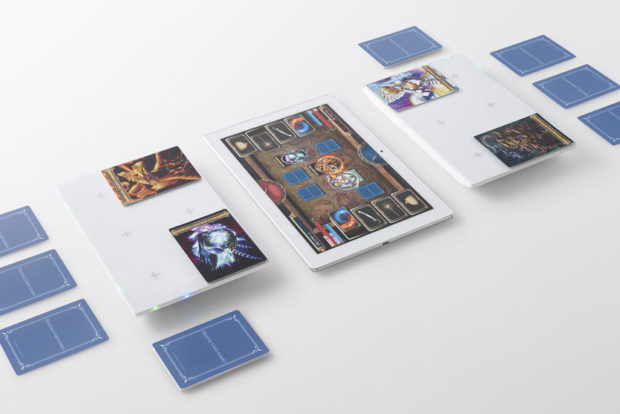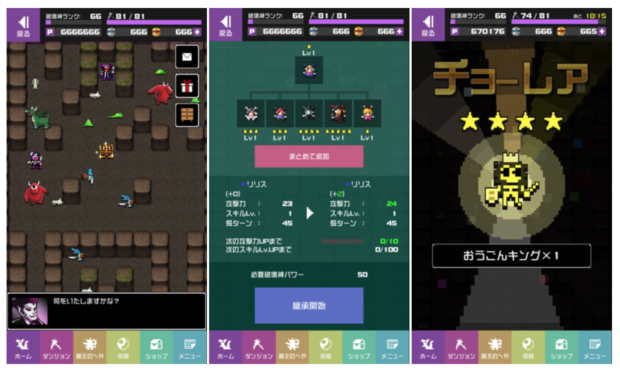At a press conference in Tokyo today, Sony (6758) detailed its next attempt to move into the mobile gaming business.
The big idea this time is to turn existing PlayStation IP into smartphone games, via a wholly owned subsidiary called Forwardworks.
In my view, the 10 titles shown today can be grouped in 3 categories.
Category 1 are games based on old/existing IP with limited or almost no mass appeal:
- RPGs “Arc The Lad” and “Wild Arms”
- tactical RPG “Disgaea” (by Nippon Ichi (3851))
- horror game “Yomawari” (by Nippon Ichi)
- puzzle action game “No Heroes Allowed! DASH!”
- adventure “Boku No Natsuyasumi”
- simulation “Dokedemo Issho”
Category 2 are games based on old IP with somewhat broader mass appeal:
- Hot Shot Golf
- music game “PaRappa the Rapper”
The only title falling into category 3, content based on new IP, is “Sora to Umi no Aida”. This simulation is a joint project between Forwardworks and Square Enix (9684).
The product Sony showed today that excited me personally the most was their “mixed reality” platform “Project FIELD” that will allow players to use physical trading cards in mobile games:
Why Did Sony Enter Mobile?
One could make the argument that Sony didn’t need to open a new battle field at this point in time, given their console game business is doing so well. (The company just shifted 50 million PS4s and left Microsoft in the dust in this console generation.)
The Vita is now only a side business for Sony, and one could argue they should better focus on making PS VR and the PS4 Pro a success.
The company’s previous attempts to break into mobile have totally failed. So why again?
The most obvious motivation for Sony’s move into mobile is of course money: Newzoo, for example, is predicting US$36.9 billion in worldwide mobile game sales for 2016 and US$52.5 billion for 2019.
The Japanese market alone reached US$9 billion last year: just like for Nintendo (7974), mobile is simply too big a market to ignore for Sony .
Another driving factor is Fate/Grand Order, a mobile RPG from Sony subsidiary Aniplex that is seeing massive success in Japan and contributing to the company’s numbers.
And there is surely “Pokemon Go envy” as an additional force: Forwardworks has been established in April 2016, before the Pokemon Go craze came over the world, but Sony CEO Hirai himself said it was that game’s success that drove him to accelerate his company’s mobile gaming plans.
Sony’s Chances Going Forward
I think that overall, Sony’s chances to make it big in mobile games are limited.
The main reasons are:
- Sony’s first-party IP portfolio is solid but not big enough
- Project FIELD is a very cool concept, but I think the target group is too small (even though mega franchise Yokai Watch has been announced to support the platform) – which is why no mobile game accessory has ever worked so far
- the business models for all games mentioned so far is unknown (it’s likely that many will be sold at fixed prices, limiting their revenue potential)
- all games have been announced to be Japan/Asia-only (I think even in Asia, most games are almost sure to underperform, while others are not even suitable for release in the West)
- the competition on mobile is already fierce, with an almost hopelessly oversaturated supply side and an increasingly hard-to-please demand side
- Nintendo is a future competitor that has, in my view, everything it takes to be become the superpower on mobile
On the first point, IP:
Several category 1 games are based on older PlayStation titles hardcore users have in good memory (especially Arc The Lad and Wild Arms) and on franchises that are still being updated today (Disgaea).
But the key factor here is that in my view, none of these are really well known among the mainstream user base on mobile – a market that is all about scale nowadays.
I am not saying that these games will necessarily flop, but their IP power is not critically high.
Just look at Sony’s screenshots for No Heroes Allowed! DASH! – which doesn’t look like a hit from any angle:
Things are a bit different for Hot Shot Golf and PaRappa: these two titles are more appealing to the mass market, but here too, Sony will have a hard time turning them into big, free-to-play mobile hits.


